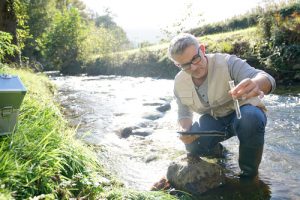
U.S. Rep. Peter Meijer (R-MI) on March 30 cosponsored bipartisan legislation that would implement a federal per-and polyfluoroalkyl substances (PFAS) study to uncover the health hazards communities face when exposed to these toxic, man-made substances.
“This bill takes a meaningful step towards advancing our understanding of PFAS and identifying what more is needed to combat it,” Rep. Meijer said.
The Federal PFAS Research Evaluation Act, H.R. 7289, which is sponsored by U.S. Rep. Lizzie Fletcher (D-TX), would require federal agencies with existing PFAS research to work with the National Academies of Science to conduct a two-phase study on PFAS exposure and toxicity and to develop a federal research and development plan to address PFAS exposure, according to a bill summary provided by the lawmakers.
“We know that PFAS contaminants are harmful to our health and our environment, but with hundreds of different compounds, much remains unknown,” said Rep. Meijer. “We need an all-hands-on-deck coordinated research approach to develop a comprehensive, effective response to PFAS.”
There are more than 5,000 types of registered PFAS compounds, a chemical class that is not currently regulated at the federal level, despite being detected in air, water, soil, food, biosolids, and more, according to the text of H.R. 7289.
PFAS accumulate and remain in the body for a long time, and can lead to serious health problems, including cancer, low infant birth weight, liver and kidney issues, and reproductive and developmental problems, among others, the text says.
Within 90 days of the enactment of H.R. 7289, the administrator of the Environmental Protection Agency, in consultation with the director of the National Science Foundation, the U.S. Defense Secretary, the National Institutes of Health director, and other relevant federal agencies would be required to enter into an agreement with the National Academies to conduct the two-phase study and submit reports that identify research and development needed to advance human exposure estimation and toxicity, and hazard estimation of individual or total PFAS, according to the bill.
“It is critical that we understand the depth of the health implications [PFAS] pose for our communities,” said Rep. Fletcher.



